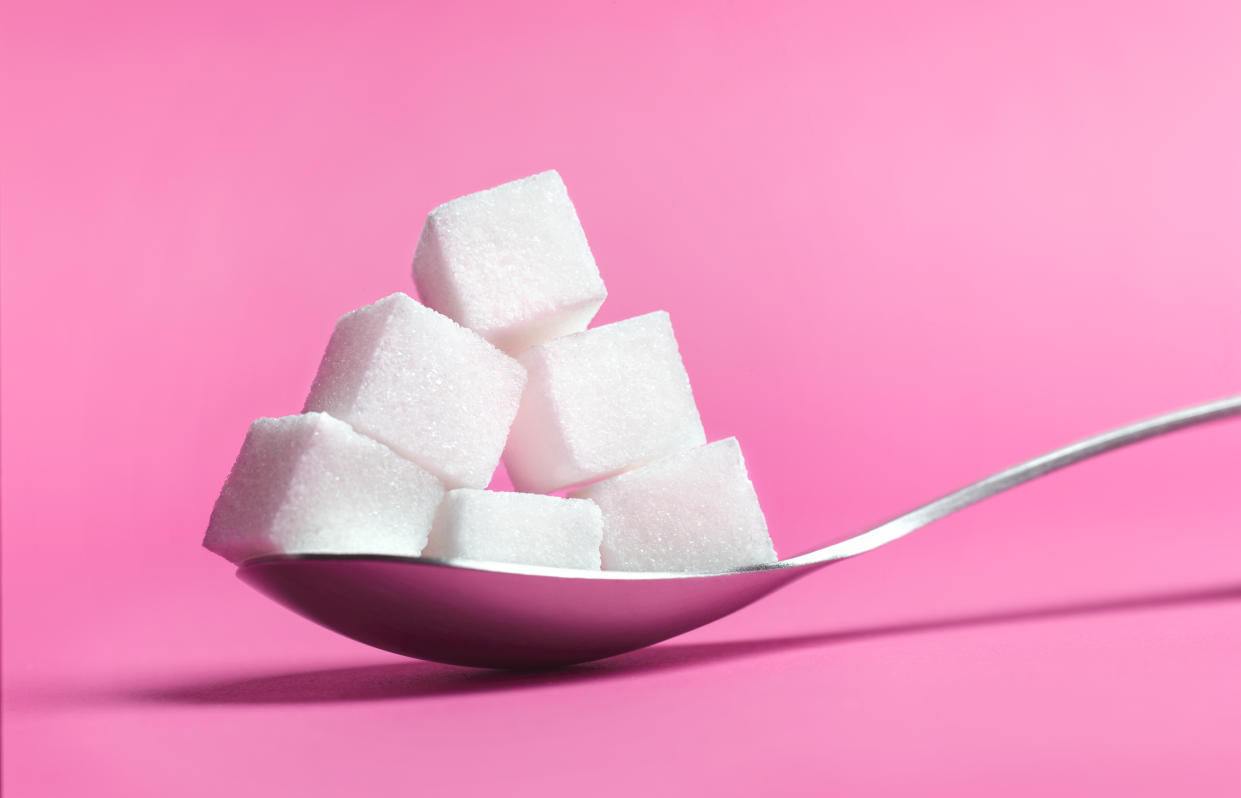Sugar hit 'similar to addictive drugs'

Eating sugar can have addictive effects similar to Class A drugs, according to new research.
Researchers from Aarhus University, Denmark, conducted a study, published in Scientific Reports, to examine what happens in the brains of pigs who drink sugary water.
They carried out a series of experiments on seven pigs who were given two litres of sugary water a day over a 12-day period.
READ MORE: How much sugar is in your favourite 'healthy' drink?
The scientists looked at images of the pigs’ brains at the beginning of the experiment; after one day; and after the final day 12 of the experiment.
"After just 12 days of sugar intake, we could see major changes in the brain's dopamine and opioid systems.
“In fact, the opioid system, which is that part of the brain's chemistry that is associated with well-being and pleasure, was already activated after the very first intake," said Michael Winterdahl, Associate Professor at the Department of Clinical Medicine at Aarhus University and one of the main authors of the work.
These effects mirrored the effect drugs have on the brain – activating the brain’s reward system, and releasing neurotransmitters like dopamine and opiods, Winterdahl explained.
These feel-good effects, which include enjoyment, happiness and well-being, are not limited to “artificial” stimuli such as drugs and sugar – we also receive them from natural stimuli, such as social interaction.
“Foods high in sucrose [the scientific term for simple sugar] influence brain reward circuitry in ways similar to those observed when addictive drugs are consumed,” read the study conclusion.
READ MORE: Tesco £1 honey is 'bulked out with sugar' leading to concerns over health claims
Explaining the dangers of this, Winterdahl expressed concern that such “artificial” stimuli could provide a “bigger or better” dopamine rush compared to natural stimuli – meaning we are likely to become hooked on the artificial alternative.
He added: "If sugar can change the brain's reward system after only twelve days, as we saw in the case of the pigs, you can imagine that natural stimuli such as learning or social interaction are pushed into the background and replaced by sugar and/or other 'artificial' stimuli.
“We're all looking for the rush from dopamine, and if something gives us a better or bigger kick, then that's what we choose.”


